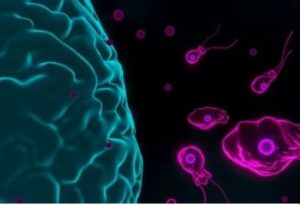
The brain-eating amoeba, Naegleria fowleri, has claimed another life in Karachi, Pakistan, confirmed the Sindh Health Department, according to a report by ARY News.
The deceased individual was a resident of a buffer zone in Karachi and had been experiencing fever and headaches for the past three days. Reportedly, the Karachi district has been the most affected area, with 11 fatalities attributed to the virus. Local authorities are urging people to take necessary precautions against this amoeba.
The Sindh Health Department advises caution when using swimming pool facilities. It emphasizes the importance of only bathing in pools with properly chlorinated water and using clean water for bathing. Naegleria fowleri enters the body through the nose and directly infects the brain, leading to high fever, followed by organ paralysis and, ultimately, death.
Naegleria fowleri is commonly found in lakes, hot springs, and poorly maintained pools. It is a single-celled organism transmitted via contaminated water and causes swelling throughout the brain, resulting in cell death. Importantly, it does not spread from person to person. The transmission rate of this amoeba is very low, and research on it has been limited.
While there is no specific medicine to cure this disease, it can be treated with antifungal and antibacterial drugs, with some individuals having been saved from death. Miltefosine has also shown effectiveness in treating this condition. The mortality rate for this disease stands at 97 per cent.
In a related incident, a 15-year-old boy in Kerala’s Alappuzha district succumbed to the disease, suffering from primary amoebic meningoencephalitis (PAM).




 Driving Naari Programme launched in Chandigarh
Driving Naari Programme launched in Chandigarh






























